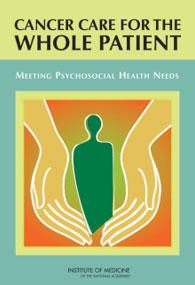Date Posted, by Jack J. Lee, Ph.D.
In 2012, Patricia Ganz, M.D., saw a 39-year-old cancer survivor for a consultation who had a long-term history of anxiety during medical visits.

Patricia Ganz, M.D.
The woman had been diagnosed with Hodgkin lymphoma when she was 23 years old. Though her treatment was successful, the cancer returned when she was 25. She received high-dose chemotherapy, a stem cell transplant, and full-dose radiation therapy to the chest. This treatment increased her risk for heart damage and breast cancer.
Dr. Ganz recommended continued monitoring for potential late medical effects, as well as psychosocial consultation for her chronic anxiety and symptoms of post-traumatic stress. But the woman resisted receipt of counseling for her anxiety. When Dr. Ganz saw her again as a 46-year-old, she had developed multiple chronic health conditions more typical of people in their seventies or eighties. She had non-invasive breast cancer and needed major cardiac surgery.
“She had so much stress coming to the medical center that it inhibited her ability to get her needs addressed in a systematic way,” said Dr. Ganz, a medical oncologist at the University of California, Los Angeles and the UCLA Jonsson Comprehensive Cancer Center. “What would have happened if very early…someone had addressed her psychosocial needs and concerns?”
Dr. Ganz shared this story as part of the Office of Cancer Survivorship (OCS) Director’s Series. During her presentation, she described progress in psychosocial care since a 2008 report by the Institute of Medicine. The report, “Cancer Care for the Whole Patient: Meeting Psychosocial Health Needs,” brought nationwide attention to the mental health needs of cancer patients and survivors and how effective care could be delivered.
Unfortunately, gaps still remain in the delivery of psychosocial services to cancer patients. This is increasingly important as new studies continue to investigate how psychosocial care influences the overall health of cancer survivors.
“The mind and body are connected,” Dr. Ganz said.
Unspoken Concerns
A cancer diagnosis can cause anxiety and distress. Individuals may experience feelings of depression or fear that a cancer will return following treatment. Such overwhelming emotions were known well before the 2008 report.

“Cancer survivors themselves stepped forward and said, no one is paying attention to what happened to me as a person,” said Emily Tonorezos, M.D., M.P.H., director of OCS, part of the NCI Division of Cancer Control and Population Sciences. “No one is helping me with the ways that my life has changed or become more difficult since my diagnosis.”
In addition to missed opportunities by health care providers to initiate conversations about psychosocial care, cancer survivors may feel uncomfortable bringing up topics. Dr. Ganz has seen patients who were hesitant to discuss marital/relationship difficulties or sexual health concerns. They thought that addressing those problems was not her concern.
“And I would say no, no, it is my job,” Dr. Ganz said. “Your well-being is my job.”
Such conversations are crucial for uncovering often-unaddressed issues, like financial hardship due to cancer care cost.
“People have refinanced their homes or borrowed money from family members,” Dr. Tonorezos said. “They are doing things in order to be able to continue to pay for their cancer treatment, without the awareness of the team.”
These challenges influence cancer care.
“If you're having trouble paying for your medicines; if you're having trouble eating regular meals; if you're having trouble paying your rent, because everything is so expensive, or you've just lost your insurance or your job—these are all things that compound whatever the physical and emotional toxicities that someone has from the cancer treatment,” Dr. Ganz said.
Depression and Breast Cancer
During her presentation, Dr. Ganz shared recent progress addressing depression in younger women with breast cancer. She led the NCI-supported Pathways to Wellness study, which enrolled women up to 50 years old who received a breast cancer diagnosis within the past 5 years. They had at least mild depressive symptoms based on a standardized depression screening measure.
The investigators examined the benefits of two specially designed group programs. One was mindfulness meditation. The other was survivorship education. Compared to the control group who didn’t get any treatment, these two interventions reduced depressive symptoms.
“The mindfulness intervention had some other pluses to it,” Dr. Ganz said. “It lasted a little bit longer—we saw benefits in depressive symptoms out to 6 months. It also helped with insomnia, it helped with hot flashes, [and] it helps with fatigue. So, when people are doing this meditation, the mind-body effects are substantial.”
The authors propose that these standardized programs could be easily shared over virtual platforms to improve quality of life and survivorship.
Community Setting
NCI’s Division of Cancer Prevention (DCP) supports additional trials to further explore psychosocial care. Some of these studies are through the NCI Community Oncology Research Program (NCORP). NCORP brings cancer clinical trials and care delivery studies to people in their communities. In particular, the NCORP network supports NCI trials on symptom management.
“Not only do we focus on physical toxicities that individuals experience, but all domains of health related quality of life,” said Diane St. Germain, R.N., M.S., a nurse consultant and program director in DCP’s Community Oncology and Prevention Trials Research Group. These include functional, emotional, and psychosocial domains.
Selected DCP-Supported Trials Including Psychosocial Care
NCI is continuing to investigate approaches to improve psychosocial care for cancer survivors. For example, researchers are becoming more aware of how where you are from or where you live impacts your cancer experience, Dr. Tonorezos said.
Recent meetings have also helped to identify crucial next steps. But there is still more to understand about cancer survivors’ needs and more work to do, she said.
References
Bower JE, Partridge AH, Wolff AC, et al. Targeting Depressive Symptoms in Younger Breast Cancer Survivors: The Pathways to Wellness Randomized Controlled Trial of Mindfulness Meditation and Survivorship Education. J Clin Oncol 2021; 39(31): 3473-3484.
Forsythe LP, Kent EE, Weaver KE, et al. Receipt of Psychosocial Care Among Cancer Survivors in the United States. J Clin Oncol 2013; 31(16): 1961-1969.
Gallicchio L, Tonorezos E, de Moor JS, et al. Evidence Gaps in Cancer Survivorship Care: A Report From the 2019 National Cancer Institute Cancer Survivorship Workshop. J Natl Cancer Inst 2021; 113(9): 1136-1142.
Hahn EE, Munoz-Plaza CE, Pounds D, et al. Effect of a Community-Based Medical Oncology Depression Screening Program on Behavioral Health Referrals Among Patients With Breast Cancer: A Randomized Clinical Trial. JAMA 2022; 327(1): 41-49.
Institute of Medicine. Cancer Care for the Whole Patient: Meeting Psychosocial Health Needs. Washington, DC: The National Academies Press; 2008.
If you would like to reproduce some or all of this content, see Reuse of NCI Information for guidance about copyright and permissions. Please credit the National Cancer Institute as the source and link directly to the blog post using the original title, for example: "Researchers Seek to Care for the Whole Patient was originally published by the National Cancer Institute." For questions, contact us at CancerPreventionBlog@mail.nih.gov.
